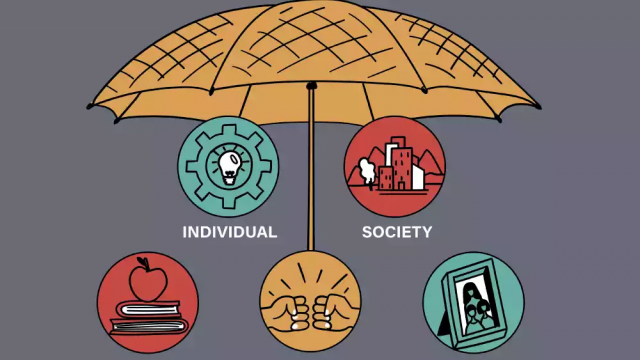Sarah Marsden
Sarah Marsden is Director of the Handa Centre for the Study of Terrorism and Political Violence (CSTPV) at the University of St Andrews, prior to which she was a Senior Lecturer at Lancaster University.
Her research takes an interdisciplinary approach to radical and violent politics focusing on global jihadism, religious nationalism, and radical social movements.
Much of Sarah’s recent research has focused on understanding the process and outcome of interventions to counter violent extremism, including in the context of deradicalisation and disengagement programmes.
Sarah’s research has been funded by ESRC, Home Office, Foreign and Commonwealth Office, Public Safety Canada, and the Heritage Lottery Fund.
CREST Outputs
Projects
Articles
Academic Publications
Examining Terrorism’s Persistence: A Relational Approach
Marsden, S. (n.d.). Examining Terrorism’s Persistence: A Relational Approach. Contemporary Voices: The St Andrews Journal of International Relations.
https://risweb.st-andrews.ac.uk/portal/en/researchoutput/examining-terrorisms-persistence-a-relational-approach(04deacf4-40b9-41bc-ae43-6dd301a5d0b4).htmlRadicalization: Trajectories in Research, Policy and Practice
This focus section provides welcome evidence of the strength of research and practice on radicalization in Germany and reflects the dynamics of debates within international policy and scholarship. The papers focus on a range of areas of research on radicalization and violent extremism covering micro-, meso- and macro-level processes alongside methods for countering and preventing violent extremism. Although the papers clearly articulate the challenges associated with carrying out research in this field, they also demonstrate the increasing scope of scholarship that is helping to explain, interpret and respond to violent extremism. By examining the wide-ranging influences on radicalization, this focus section extends an invitation to both broaden and deepen scholarship in the field: broadening research to develop more interdisciplinary, integrative frameworks to help interpret radicalization processes, and deepening it by interrogating and test-ing existing models and frameworks to develop more robust explanations of the pathways into and out of violence. This effort will be enhanced by greater use of theory from comparable areas of scholarship and by sustaining a research culture that nurtures rigorous, innovative methodologies able to capture the com-plexities of violent extremism. The papers in the focussection demonstrate that the field is in robust shapeand sets the stage for further research on radicaliza-tion and violent extremism.
(From the journal abstract)
Kim Knott & Benjamin Lee, 2020. Ideological Transmission in Extremist Contexts: Towards a Framework of How Ideas Are Shared. Politics, Religion & Ideology.
https://doi.org/10.4119/ijcv-3811
Projects
Articles
Academic Publications
Examining Terrorism’s Persistence: A Relational Approach
Marsden, S. (n.d.). Examining Terrorism’s Persistence: A Relational Approach. Contemporary Voices: The St Andrews Journal of International Relations.
Radicalization: Trajectories in Research, Policy and Practice
This focus section provides welcome evidence of the strength of research and practice on radicalization in Germany and reflects the dynamics of debates within international policy and scholarship. The papers focus on a range of areas of research on radicalization and violent extremism covering micro-, meso- and macro-level processes alongside methods for countering and preventing violent extremism. Although the papers clearly articulate the challenges associated with carrying out research in this field, they also demonstrate the increasing scope of scholarship that is helping to explain, interpret and respond to violent extremism. By examining the wide-ranging influences on radicalization, this focus section extends an invitation to both broaden and deepen scholarship in the field: broadening research to develop more interdisciplinary, integrative frameworks to help interpret radicalization processes, and deepening it by interrogating and test-ing existing models and frameworks to develop more robust explanations of the pathways into and out of violence. This effort will be enhanced by greater use of theory from comparable areas of scholarship and by sustaining a research culture that nurtures rigorous, innovative methodologies able to capture the com-plexities of violent extremism. The papers in the focussection demonstrate that the field is in robust shapeand sets the stage for further research on radicaliza-tion and violent extremism.
(From the journal abstract)
Kim Knott & Benjamin Lee, 2020. Ideological Transmission in Extremist Contexts: Towards a Framework of How Ideas Are Shared. Politics, Religion & Ideology.









































